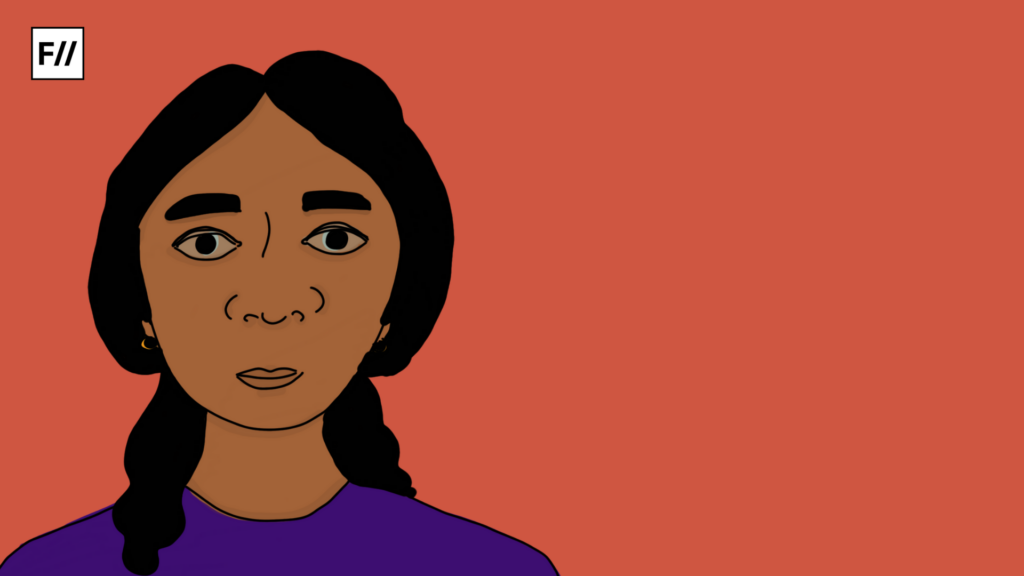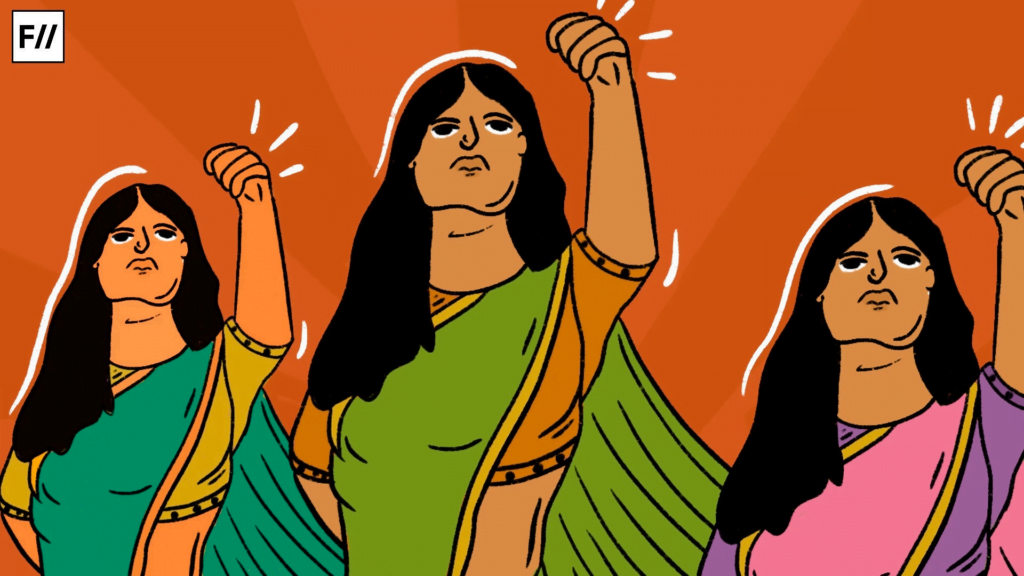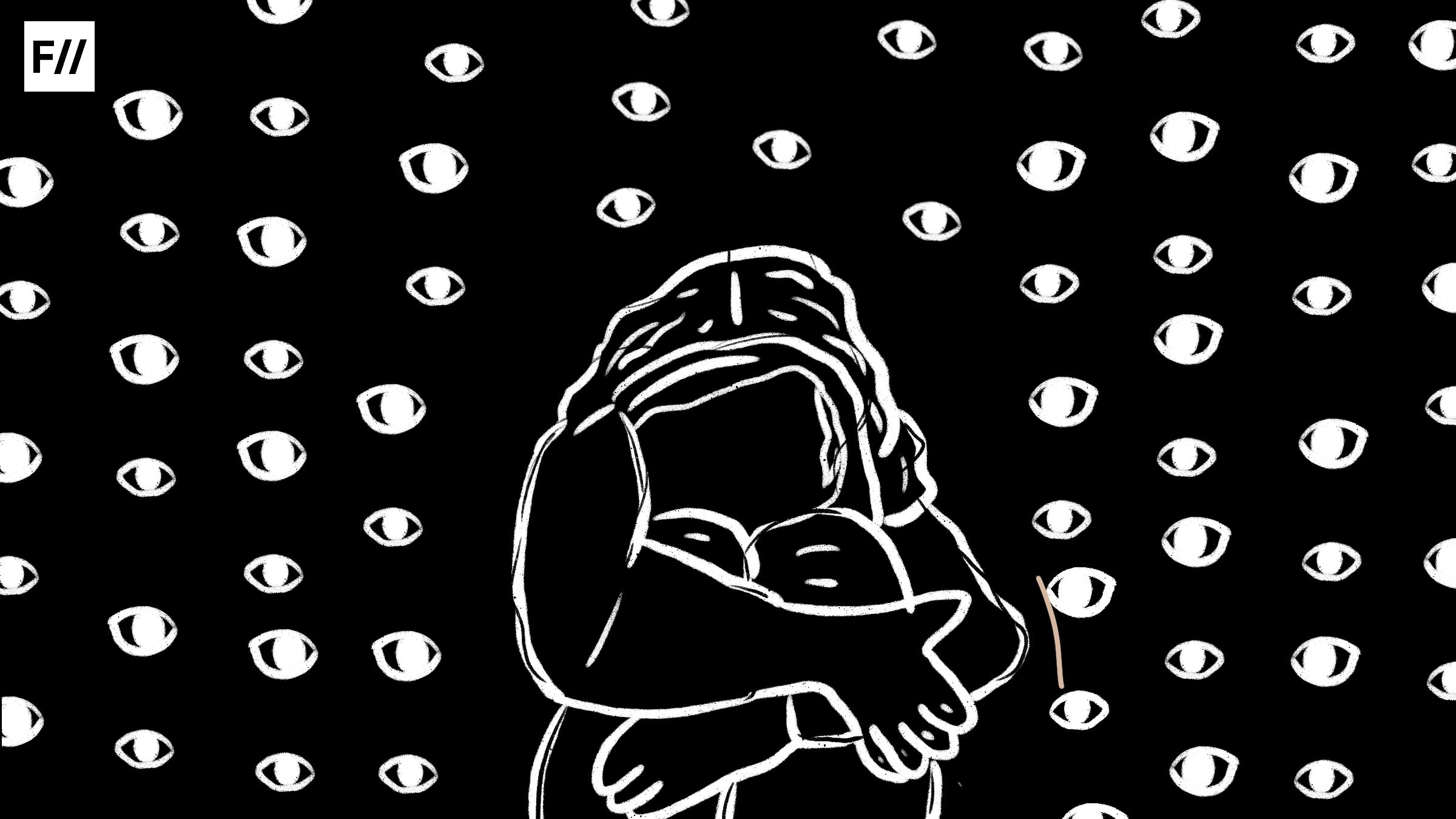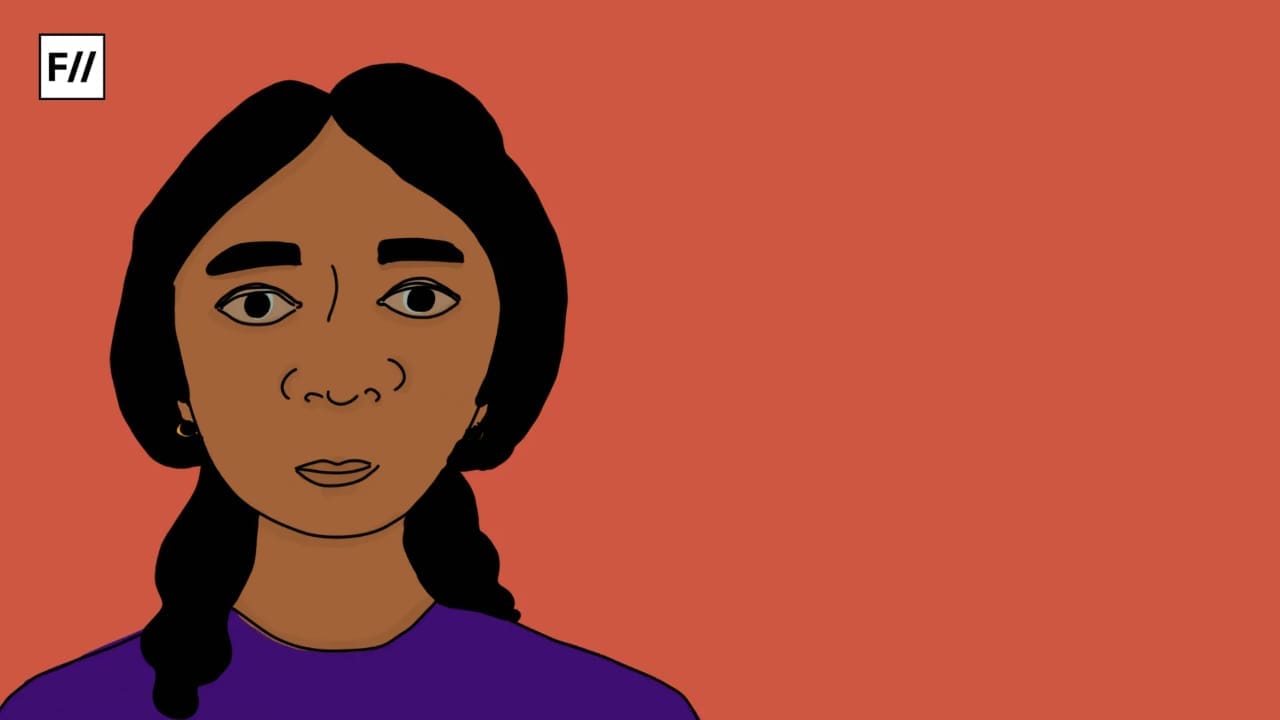According to Betham, there exists an omnipresent and invisible “inspector” who surveys everyone and has access to everyone’s information. In the present digital age, this invisible inspector is known to us as technology, specifically the internet, which keeps everyone under its digital surveillance.
While surveillance is a method of control mainly used by the state as a means to keep a check on the activities of the people, women are surveyed much more critically and harshly not just by the state but by everyone else around them with the help of technology.
Digital surveillance of women in the private sphere
However, the digital surveillance of women is much more nuanced than it seems. In a patriarchal world where women are considered inferior to men and are treated as second-class citizens, there is a tendency to constantly place women under surveillance so that they can be controlled by their families, especially their male family members.

In 2015, the Saudi Arabian Government launched an application named Absher that allowed men to ‘track and control’ women by logging in their personal documents and determining how often and how long they can travel. The Absher application is one example out of many other tools that are used to put women under strict surveillance. There are several cost-effective spyware available in the market that has the ability to monitor someone’s phone calls, messages, media, location, and even their emails and accounts. Men often use such software and applications to monitor the women in their families and control them. This shows how the highly unequal power dynamics give men the authority to take agency over women and their data.
Sharing of passwords is another strategy to enforce digital surveillance of women. It is a fairly common practice where the husband asks the wife to share the password of her social media accounts with her so that he can track her online activity, especially her interactions with other people. Through the sharing of passwords in the name of trust, safety, and protection, women are put under scrutinising surveillance by their male counterparts leading to the loss of agency and control over their data and themselves.
Sharing of passwords is another strategy to enforce digital surveillance of women. It is a fairly common practice where the husband asks the wife to share the password of her social media accounts with her so that he can track her online activity, especially her interactions with other people. Through the sharing of passwords in the name of trust, safety, and protection, women are put under scrutinising surveillance by their male counterparts leading to the loss of agency and control over their data and themselves.
Digital surveillance of women in the public sphere
The term ‘public sphere’ includes spaces that are accessible to everyone. The presence and surveillance of women in male-dominated workplaces and online spaces show how every single action carried out by women is tracked and stored only to be used against them. Women from marginalised castes and religions who are already under the current government’s attack become more prone to surveillance and its negative consequences that range from the violation of privacy to heinous crimes.

In 2022, several women journalists all across the globe were placed under digital surveillance with the help of Pegasus. In India, the mobile phones of 40 senior journalists and several activists were compromised and the security of their personal information ranging from their emails and media was breached. Moreover, several journalists such as Rana Ayuub and Meena Kotwal are frequently targeted and monitored by the vicious trolls and the Government because of their identities as female Muslim and Dalit journalists.
According to the Status of Policing in India Report (SPIR) 2023, “Adivasis and Muslims are the most critical of the police collecting biometric details of all suspects”, making Muslim and Adivasi women more prone to surveillance and its negative consequences.
Not only female journalists but women activists are also targeted by online trolls frequently and are placed under stringent surveillance by the Government whenever they raise their voices against the majority. It m is important to remember how, during the Anti-CAA protests, women activists and students such as Safoora Zargar were targeted by the Government and falsely accused under the Unlawful Activities (Prevention) Amendment Act [UAPA] for allegedly inciting violence because they were women and Muslim. In addition to the Government, people online started to keep activists like Safoora under stringent surveillance while they maligned her character through highly offensive sexist trolls targeting her personal life decisions.

Digital surveillance in the workplace is also casteist as lower-caste sanitation workers in India are put under the compulsion to wear GPS-enabled smartwatches. The GPS-enabled watches are a means to place sanitation workers under digital surveillance as they monitor their real-time location and they are not even permitted to turn them off even when they take their mandated breaks. The tracker places female sanitation workers at higher risk because it allows their seniors and officials to track the location of their homes compromising their safety and privacy. The authority can also turn on the inbuilt camera at any time as per their wish, which could grossly violate their privacy and personal space.
Digital surveillance of women in online spaces
Women are subjected to all types of threats when they are on social media. When women post any media of themselves on their social media handles, they come under the surveillance of their followers. People who stalk them online can guess their location from the media posted and can attempt to harass them physically. However, it must be noted that the online space is mostly dominated by privileged castes and religions.
Due to this, women from lower-caste and marginalised religions are not allowed to claim their space and exercise their right to freedom of speech and expression since they are always under the constant threat of being under the surveillance of upper-caste people.
Women are targeted even if they do not post any media and just express their thoughts through text. During the #MeToo movement, when many women came forward about being sexually abused by influential men, they were bullied by their fans. One might be reminded how, when Johnny Depp’s trial was televised, more than 600 accounts on Twitter tweeted only about Amber Heard as they ‘analysed’ the intimate and traumatic details of her abuse shared during the trial.
Women are targeted even if they do not post any media and just express their thoughts through text. During the #MeToo movement, when many women came forward about being sexually abused by influential men, they were bullied by their fans. One might be reminded how, when Johnny Depp’s trial was televised, more than 600 accounts on Twitter tweeted only about Amber Heard as they ‘analysed’ the intimate and traumatic details of her abuse shared during the trial. The online trolls surveyed and scrutinised the smallest of actions such as her tone of voice and her facial expressions during the trial to determine whether she was speaking the truth or not.

Due to cases like these which are rapidly increasing, women self-censor and monitor themselves, especially in online spaces to save themselves from the chaos that comes when they speak their minds, especially on a public platform.
Conclusion
When surveillance is used to protect people from danger and serve as a tool to ensure that predators are kept under check, digital surveillance can be excellent. However, using digital surveillance to suppress minorities by tracking their actions and using it against them is a violation of their privacy and their freedom of speech and expression.
Women are put under stringent digital surveillance by men in the private space of family as well as in public spaces which restricts their potential and enforces the unequal power dynamics where men have complete authority over women. Moreover, women belonging to lower castes and marginalised religions are constantly under attack because of their identity and suffer the severe negative consequences of digital surveillance as compared to women who hail from dominant castes or religions. Therefore, surveillance is a double-edged sword that is being weaponised by the patriarchy to monitor, control and subjugate women in all spheres of life.
About the author(s)
Neha (She/They) is a neurodivergent queer writer who illustrates occasionally. A student of media and gender studies, Neha is critical of the patriarchal and heteronormative world around her and looks at it from the political lens of intersectionality. Although socially introverted, you can find Neha getting out of her shell and interacting with people, getting to know their experiences, and analyzing how the biased structure of the society impacts the marginalized.






